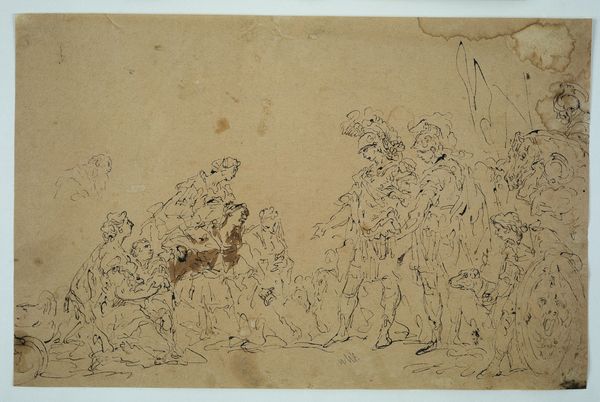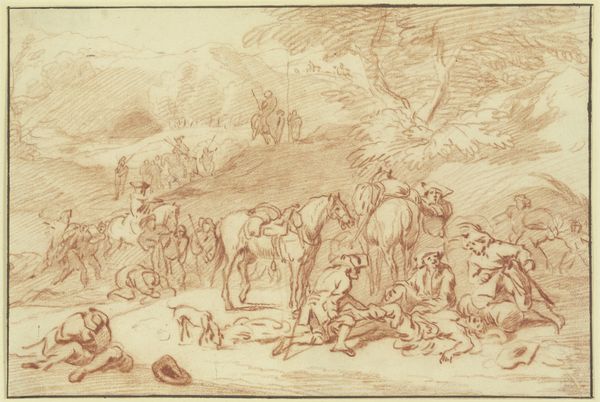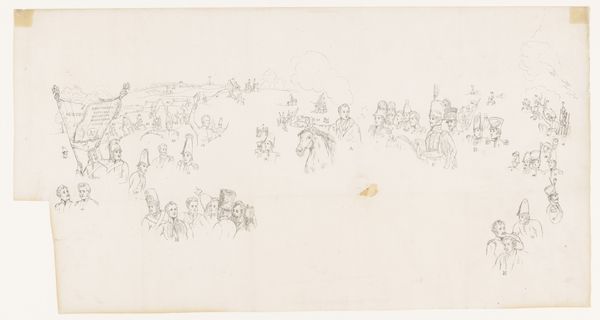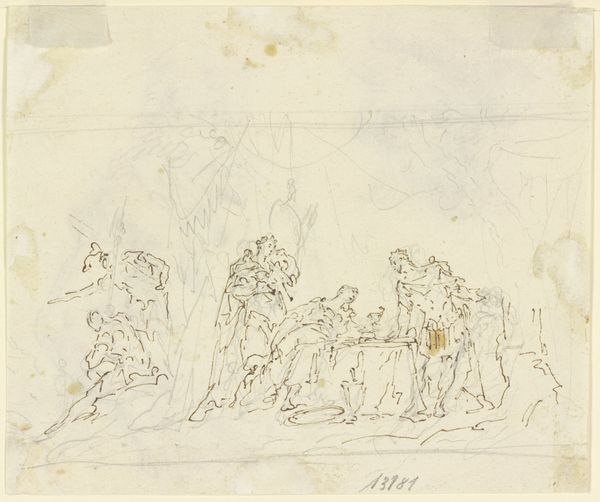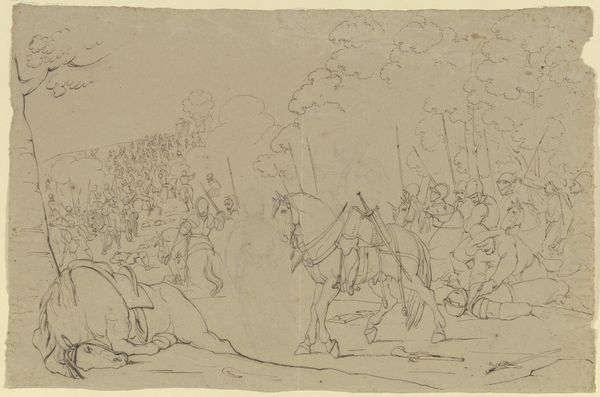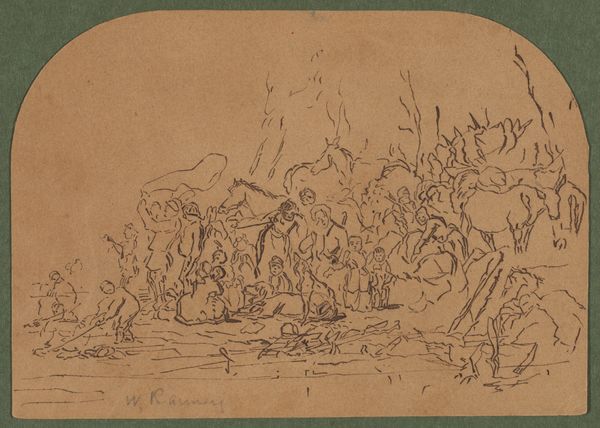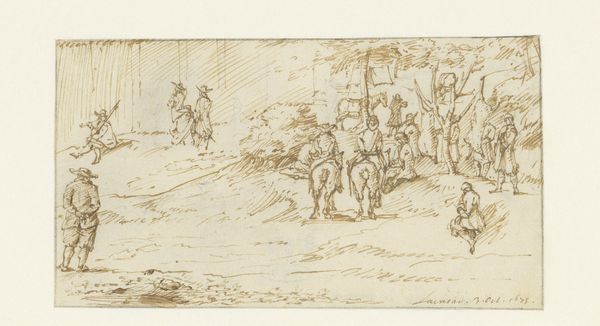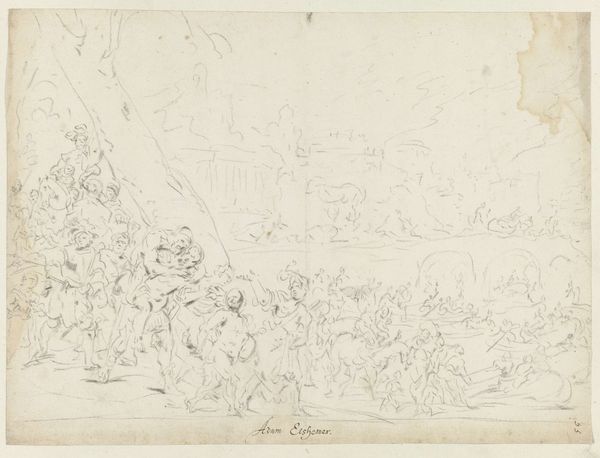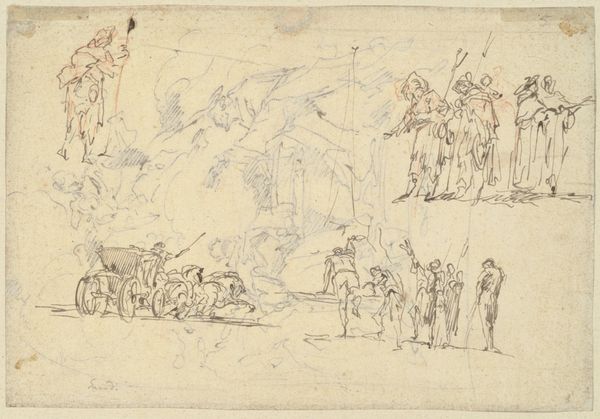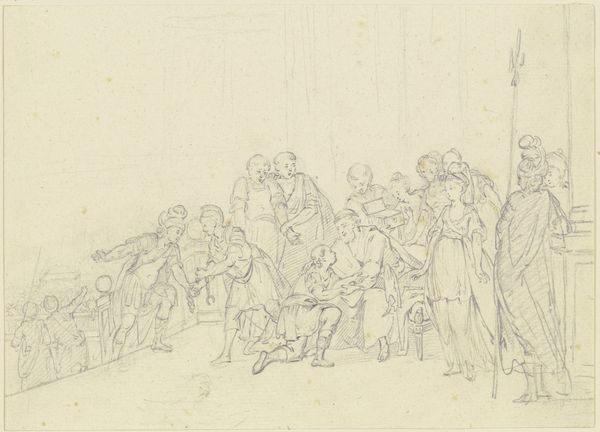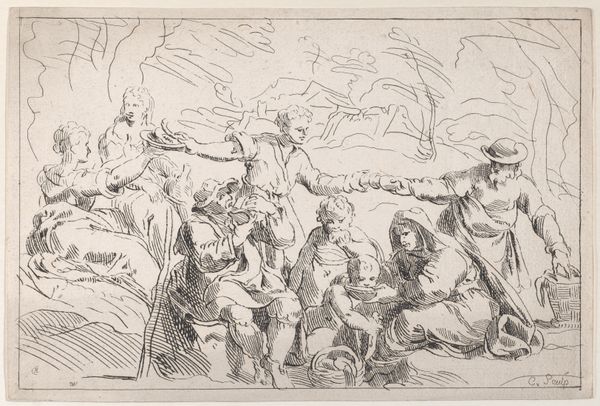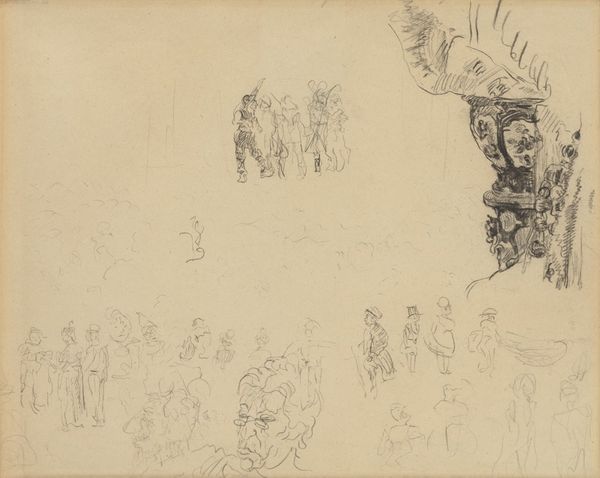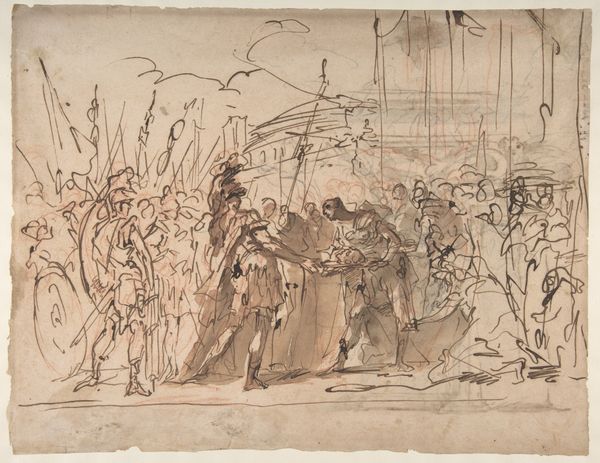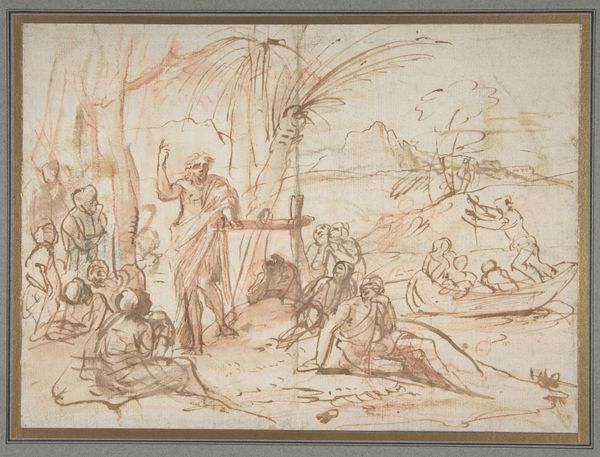
drawing, red-chalk, ink
#
portrait
#
drawing
#
narrative-art
#
baroque
#
ink painting
#
red-chalk
#
figuration
#
ink
#
history-painting
Copyright: Public Domain
Curator: This drawing, rendered in red chalk and ink, comes to us from Gaspare Diziani, around 1748. It’s titled "Alexander und die Familie des Darius," now in the Städel Museum collection. It’s quite a marvel, isn’t it? Editor: It's definitely got a sketch-like urgency about it, doesn't it? Sort of like Diziani caught a moment right as it was about to slip away, that hesitant linework... I imagine him dashing this off in a frenzy. It really comes alive, no? Curator: Well, yes, but within a very deliberate historical context. The story it depicts, Alexander the Great’s encounter with the family of Darius, held immense currency. It speaks to the ideals of clemency, of power tempered by restraint, virtues carefully cultivated in leadership. Editor: Restraint! I don't know. Look at that theatricality. Everyone's practically tumbling over themselves to express grief or gratitude, or is it awe? The Baroque never really holds back, does it? Is this his first impression? I see it as an emotive drama. Curator: Baroque theatricality always serves a purpose. Consider its role in shaping public perception, especially regarding power. Such scenes visually reinforced accepted models of conduct expected of leaders; the drawing participates in a visual dialogue about legitimate authority, leadership qualities and conduct in times of war. It underscores ideas of 'soft power' as well, presenting the ruler as being in complete control by choosing mercy. Editor: Hmmm, it's still interesting how the composition mirrors all this; a foreground of supplicants leading to this erect figure of Alexander amidst the visual hubbub behind him. His calm becomes all the more unnerving. What story will Alexander act out? What will he choose, vengeance, power or humility? But is there a real choice here? Are his strings pulled from afar too, the theater of rule you mention? Curator: Well, regardless, what I love is that it provides a lens through which to consider what those in positions of authority at the time were willing to believe that they were representing to the world at large! The ideals! The humanity. It's powerful for us now, but speaks so much to how they saw themselves. Editor: For me, it's like a snapshot of these complicated moral knots inherent to holding power. And maybe some questions. Like if this power is actually something anyone holds at all. The drama, and all its implications still resonate.
Comments
No comments
Be the first to comment and join the conversation on the ultimate creative platform.
